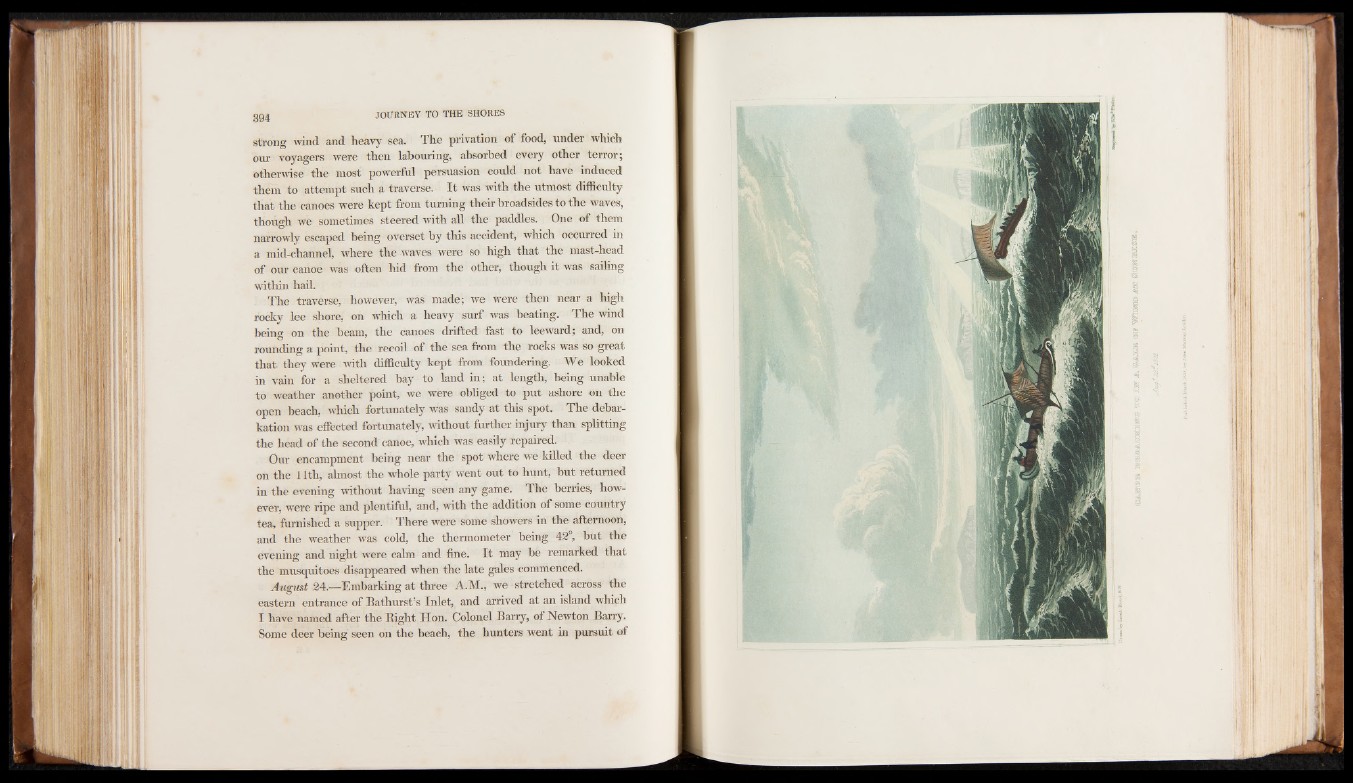
strong wind and heavy sea. The privation of food, under which
our voyagers were then labouring, absorbed every other terror;
otherwise the most powerful persuasion could not have induced
them to attempt such a traverse. It was with the utmost difficulty
that the canoes were kept from turning their broadsides to the waves,
though we sometimes steered with all the paddles. One of them
narrowly escaped being overset by this accident, which occurred in
a mid-channel, where the waves were so high that the mast-head
of our canoe was often hid from the other, though it was sailing
within hail.
The traverse, however, was made; we were then near a high
rocky lee shore, on which a heavy surf was beating. The wind
being on the beam, the canoes drifted fast to leeward; and, on
rounding a point, the recoil of the sea from the rocks was so great
that they were with difficulty kept from foundering. We looked
in vain for a sheltered bay to land in; at length, being unable
to weather another point, we were obliged to put ashore on the
open beach, which fortunately was sandy at this spot. The debarkation
was effected fortunately, without further injury than splitting
the head of the second canoe, which was easily repaired.
Our encampment being near the spot where we killed the deer
on the 11th, almost the whole party went out to hunt, but returned
in the evening without having seen any game. The berries, however,
were ripe and plentiful, and, with the addition of some country
tea, furnished a supper. There were some showers in the afternoon,
and the weather was cold, the thermometer being 42°, but the
evening and night were calm and fine. It may be remarked that
the musquitoes disappeared when the late gales commenced.
August 24.—Embarking at three A.M., we stretched across the
eastern entrance of Bathurst’s Inlet, and arrived at an island which
I have named after the Bight Hon. Colonel Barry, of Newton Barry.
Some deer being seen on the beach, the hunters went in pursuit of